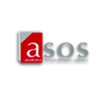Research Article
Aim & Scope
Middle Black Sea Journal of Communication Studies is a peer-reviewed journal published online by Ondokuz Mayıs University, Faculty of Communication. He publishes in the fields of communication studies and media studies. The aim of the journal is to bring together different academic perspectives that seek originality, are open to criticism, and maintain this understanding that cares about interdisciplinary approaches.
Middle Black Sea Journal of Communication Studies accepts studies in fields such as media, digital media, audiovisual and written communication, new media, gender, cinema, television, art, culture, popular culture, journalism. Those who work in these fields and research topics such as social, political, economic, etc. attaches importance to the contributions of researchers who question multidimensional aspects.
There is no charge for accepting and publishing articles in the Middle Black Sea Journal of Communication Studies.
Author Guidelines
Writing rules
Studies should be written in MS Word program.
Manuscripts should be formatted in Times New Roman, 12 font size and 1.5 line spacing.
Abstracts between 100-150 words in Turkish and English should be included in the studies.
On a cover page independent of the work, the name of the author, if any, the institution and title, full address, telephone and e-mail address should be stated.
Headings should be clear and short if possible.
Care should be taken in reference notation.
In-text Citation
References should be cited at appropriate places in the text and in parentheses. References should be cited as author surname, publication year and page number, respectively. Notes in the text should be numbered and shown as footnotes. In-text rules also apply for references in footnotes.
In-Text Citation Formats:
If the name of the author is not mentioned in the text: (Fiske, 1996: 26)
If the author's name is mentioned in the text: According to Fiske (1996: 45)
In case of non-consecutive pages: (Fiske, 1996: 22-6, 45-8)
If there are two authors: (Keat ve Urry, 2016: 12)
If there are more than two authors: (Yamanoğlu et al., 2013: 34)
If there is a reference to more than one work of the same author published in the same year: (Foucault, 1979a: 17). For other work: (Foucault, 1979b: 22)
If there are references to more than one source on the mentioned topic: (Nerone, 2003: 97; Scannel, 2002: 194; Williams, 2007: 246).
Direct quotations should be shown with double quotes. The quote within the quote should be shown with single quotes.
Quotations longer than 40 words should be indented without quotation marks.
Abbreviations such as “etc.”, “etc.”, “ibid”, “see.” are not used in the text and footnotes.
Editing the Bibliography:
The bibliography should be arranged in alphabetical order.
Book: Taş, Oğuzhan (2017). İletişim, Medya ve Kültür: Anahtar Kavramlar. Ankara: Ütopya Press.
Translation book: Fiske, John (1996). İletişim Çalışmalarına Giriş. Trans., Süleyman İrvan. Ankara: Ark.
Book with Two Authors: Keat, Russel ve Urry, John (2016). Bilim Olarak Sosyal Teori. Trans., Nilgün Çelebi. Ankara: İmge Book.
Book with Three or More Authors: A. Yamanoğlu, Melike, et al. (2013). Türkiye'de Halkla İlişkiler Tarihi: Kurumsallaşma Yılları 1960-1980. Ankara: De Ki Press.
Article in a Compilation Book: Kellner, Douglas (2010). “Kültür Endüstrileri.” In Kitle İletişim Kuramları. Erol Mutlu (ed.). Ankara: Ütopya Press. 233-240.
Article in the Journal: Orhon, Göze (2015). “Medya ve Bellek Çalışmaları: Paralellikler, Gerilimler.” İletişim Araştırmaları 13(2): 9-33.
Presentation : Kejanlıoğlu, D. Beybin (2000). “Kitle İletişim Tarih Yazımları Üzerine.” I. Ulusal İletişim Sempozyumu 3-5 Mayıs 2000. Ankara.
Article with author from website: Thornton, Edward (2018). “Two’s a crowd: Zany and earnest, political yet puckish, Gilles Deleuze and Félix Guattari were philosophy’s most improbable duo.” https://aeon.co/essays/a-creative-multiplicity-the-philosophy-of-deleuze-and-guattari Erişim tarihi: 06.11.2018.
Website: Türkiye İstatistik Kurumu (TÜİK), Çevre Koruma Harcama İstatistikleri 2017, www.tuik.gov.tr. Erişim tarihi: 28.11.2018.
Ethical Principles and Publication Policy
Middle Black Sea Journal of Communication Studies is an open access, peer-reviewed journal. The journal is published twice a year, in May and November. Double-blind referee evaluation system is applied in the journal. In this framework, an evaluation system with at least two referees is operated, in which the referees and authors are unaware of each other. In addition, the responsibilities that the authors, referees and editors should take in line with the ethical principles stated below are taken care of. Regarding these ethical principles, we act in accordance with the directive prepared by the "Committee on Publication Ethics - COPE, https://publicationethics.org/".
The Middle Black Sea Journal of Communication Studies does not charge for article acceptance and publication.
Publication Process
The articles sent to the Middle Black Sea Journal of Communication Studies are taken into the evaluation process within the specified dates.
Studies are pre-evaluated by the editor and the application is answered within 7 days. If the editor is deemed appropriate, the study is included in the peer review process. TThe evaluation process of the studies evaluated by 2 referees with the blind referee system is completed within 15 days after the referee accepts the referee invitation. This period can be extended by the editor if necessary. Studies that are accepted as a result of all evaluations are published in the specified period (March-September). In each issue, 5-8 articles are published in accordance with the decision of the Editorial Board. In cases exceeding this number, the articles are kept for the next issue and the author is informed about the subject. The time given to the author to complete the requested corrections is 15 days. This period may be extended if the editor deems it appropriate. The target time for the study to complete all processes and be ready for publication is 60 days on average.
Studies are sent to the journal via https://dergipark.org.tr/mbsjcs.
As a result of the preliminary evaluation of the editor and the evaluation of the referee, corrections and changes can be requested from the author. It is expected from the author to fulfill the changes that he sees appropriate, and to state in detail if he does not find it appropriate.
Authors have the right to withdraw their work at any stage of the publication process.
Author's Responsibilities
Work must not contain any form of plagiarism.
Studies should be prepared in accordance with the publication policy and writing guidelines of the journal.
The work must not have been previously published elsewhere.
It is necessary not to apply to more than one medium at the same time with the same work.
It should be avoided to use a discriminatory style on subjects such as language, religion, race and gender in the studies.
The works must not violate the intellectual property rights of another person or persons.
The names of all the authors who contributed to the study should be stated and the approval of all authors regarding the publication process should be obtained.
If a different version of the work has been previously published in another medium, it must be stated.
Quotations, tables/figures/pictures and other visual or written data that exceed the "fair use principle" specified in the current copyright law must be authorized.
In studies carried out with qualitative or quantitative approaches that require data collection from the participants by using interview, focus group work, observation, experiment, interview techniques, clinical studies on humans and animals, etc. research, research that requires the protection of personal data, etc. Ethics committee approval is required.
In case reports, it should be stated that an "informed consent form" was taken.
Scales, surveys, etc. in researches belonging to others. In case of using the results, permission should be obtained from the authors and it should be stated in the study that the necessary permission has been obtained.
In articles produced from master's and doctoral studies, it must be stated that they were produced from the thesis.
In cases where ethics committee approval is required, the decision of the committee; The name, date and number of the board should be stated in the relevant part of the article in the form of footnotes. In addition, the aforementioned permission form should be sent to the journal together with the study.
The data of the published studies must be kept by the author for five years.
The copyright form should be sent to the journal with the work.
It is requested not to suggest changes in the author information (add, remove, change the order, etc.) of the studies included in the evaluation process.
If any ethical violations are encountered in the studies during the evaluation process, the author should inform the editor and show the necessary sensitivity about changes or withdrawals.
Responsibilities of the Referees
Referees must comply with the confidentiality principle required by the blind peer review system.
He/she should accept incoming arbitrator offers according to his/her field of expertise and should reject the said arbitration offer in cases where there may be a conflict of interest or interest.
Care should be taken to complete the evaluation process within the specified time.
The evaluation should be carried out in line with the publication policy and ethical principles of the Middle Black Sea Journal of Communication Studies.
He should pay attention to the use of clear, understandable, academic style and non-offensive language in his statements regarding the assessment.
It should be fair and impartial.
It should pay attention to the privacy policy.
In case of any suspicion of plagiarism or the suspicion of simultaneous application to different media, he should inform the editor.
all kinds
Price Policy
Our journal does not charge any fee from the authors at any stage of the publication process.
Indexes
Journal Boards
Concessionaire
Scientific Journals Coordinator

Responsible Manager

Editor-in-Chief

Editors


Associate Editors


Dr. Ahmet Oktan Ondokuz Mayıs Üniversitesi İletişim Fakültesi'nde öğretim üyesidir. Sinema sosyolojisi, belgesel sinema, sinema felsefesi ve toplumsal cinsiyet alanlarında kitap, kitap bölümü, makale, sempozyum bildirisi gibi yayınlanmış çalışmaları bulunmaktadır. SineFilozofi Derneği üyesidir ve çeşitli akademik dergilerin yayın kurullarında görev yapmaktadır.
Foreign Language Editor


Elif Ateş is a Ph.D. candidate in the Department of Public Relations and Publicity at Marmara University. Her research interests include interpersonal communication, critical discourse analysis, language pedagogy, and media literacy. Drawing on her formal training in French and English language teaching, she adopts an interdisciplinary perspective that integrates linguistics, communication theory, and media studies to examine globalization, multilingualism, and the role of narrative structures in education. Her doctoral research critically explores societal transformation through representations in international media. Ateş has authored and co-authored over 25 academic publications in the fields of cultural studies, foreign language education, and media literacy. Her scholarly work particularly emphasizes the pedagogical use of storytelling and fairy tales in foreign language classrooms, as well as media manipulation in digital societies.
Asistant Editors

Editorial Advisory Board



1968 yılında Silifke'de doğdu. 1984 yılında Ege Üniversitesi İletişim Fakültesine (BYYO) girdi. 1986-1988 arasında Akajans ve Tercüman gazetesi İzmir temsilciliğinde gece muhabirliği yaptı.
1988- 1996 arasında Ankara'da Yeni Düşünce, Milliyetçi Çizgi, Hergün gibi gazetelerde muhabir, editör ve yayın koordinatörü olarak çalıştı.
1996-2014 yılları arasında Selçuk Üniversitesi İletişim Fakültesi Gazetecilik Bölümünde öğretim görevlisi ve öğretim üyesi olarak çalıştı. Ana Bilim Dalı Başkanlığı ve Gazetecilik Bölüm Başkanlığı yaptı. Bu dönemde üniversite televizyonunun kurucuları arasında yer aldı ve yayın koordinatörlüğü yaptı. Fakülte gazetesinin genel yayın yönetmenliğini yürüttü.
2014- 2019 yılları arasında Akdeniz Üniversitesi İletişim Fakültesi Gazetecilik Bölüm Başkanlığı görevini yürüttü. Sosyal Bilimler Enstitüsü Yönetim Kurulu üyeliği yaptı. 2016-2018 yılları arasında Akdeniz Üniversitesi Sosyal Bilimler Meslek Yüksek Okulu Müdürü olarak görev aldı. 2020-2021 döneminde İletişim Fakültesi dekanlığı görevini yürüttü. Halen Akdeniz Üniversitesi İletişim Fakültesi Gazetecilik Bölümünde öğretim üyesi olarak görev yapıyor.








